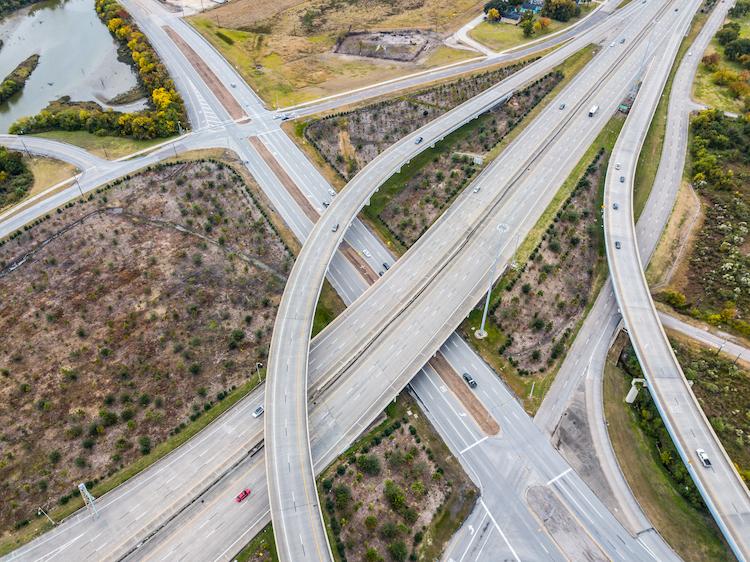SCOTUS Clarifies Reach of FAA Exemption for Transportation Workers


In Bissonnette v. LePage Bakeries Park St., LLC, 601 U.S. ____ (2024), the U.S. Supreme Court held that the Federal Arbitration Act’s (FAA) exemption for transportation workers in interstate commerce applies to transportation workers regardless of whether they work in the transportation industry.
Facts of the Case
Respondent Flowers Foods, Inc. produces and markets baked goods that are distributed nationwide. Petitioners Neal Bissonnette and Tyler Wojnarowski owned the rights to distribute Flowers products in certain parts of Connecticut. To purchase those rights, they entered into contracts with Flowers that require any disputes to be arbitrated under the FAA.
Pursuant to the FAA, arbitration agreements are “valid, irrevocable, and enforceable, save upon such grounds as exist at law or in equity for the revocation of any contract.” However, the FAA includes an exception that provides, in relevant part, that the FAA shall not “apply to contracts of employment of seamen, railroad employees, or any other class of workers engaged in foreign or interstate commerce.”
After petitioners sued Flowers and two of its subsidiaries for violating state and federal wage laws, Flowers moved to compel arbitration. Petitioners responded that they are exempt from coverage under the FAA because they fall within the exception. The District Court dismissed the case in favor of arbitration, concluding that petitioners were not “transportation workers” exempt from the Act under §1. The Second Circuit Court of Appeals ultimately affirmed on the ground that the §1 exemption was available only to workers in the transportation industry, but that petitioners were in the bakery industry.
Supreme Court’s Decision
The Supreme Court unanimously reversed. “A transportation worker need not work in the transportation industry to fall within the exemption from the FAA provided by §1 of the Act,” Chief Justice John Roberts wrote.
In reaching its decision, the Court reviewed its prior decisions regarding the exemption. In Circuit City Stores, Inc. v. Adams, 532 U.S. 105 (2001), the Supreme Court recognized that §1 is limited to transportation workers. The Court revisited the scope of the residual clause in Southwest Airlines Co. v. Saxon, 596 U.S. 450 (2022). It declined to adopt an industrywide approach to §1, rejecting the employee’s claim that she was a member of a “class of workers engaged in foreign or interstate commerce” simply because she worked for an airline and carried out its customary work. According to the Court, the language of §1—referring to “workers” who are “engaged” in commerce—focuses on the performance of work rather than the industry of the employer.
In this case, the Court rejected the Second Circuit’s transportation-industry requirement. As Chief Justice explained:
The application of such a test, however, would often turn on arcane riddles about the nature of a company’s services. Does a pizza delivery company derive its revenue mainly from pizza or delivery? Do companies like Amazon and Walmart—which both sell products of their own and transport products sold by third parties—derive their revenue mainly from retail or shipping?Extensive discovery might be necessary to explore the internal structure and revenue models of a company before deciding a simple motion to compel arbitration. Mini-trials on the transportation-industry issue could become a regular, slow, and expensive practice in FAA cases. All this “complexity and uncertainty” would “‘breed[] litigation from a statute that seeks to avoid it.’”
The Court next turned to Flowers argument that the §1 exemption would sweep too broadly without an implied transportation-industry requirement. The justices did not share the concern, noting that as the Court held in Saxon, a transportation worker is one who is “actively” “ ‘engaged in transportation’ of . . . goods across borders via the channels of foreign or interstate commerce.” According to the Court, this requirement “undermines any attempt to give the provision a sweeping, open-ended construction,” instead limiting §1 to its appropriately “narrow” scope.
Previous Articles
SCOTUS Rules State Can’t Immunize Parties from Federal Civil Liability
by DONALD SCARINCI on January 29, 2026
In John Doe v. Dynamic Physical Therapy, LLC, 607 U.S. ____ (2025) the U.S. Supreme Court held that...
Supreme Court to Address Racial Discrimination in Jury Selection
by DONALD SCARINCI onWhile the U.S. Supreme Court has concluded oral arguments for the year, it continues to add cases t...
Supreme Court Halts Deployment of National Guard to Chicago
by DONALD SCARINCI on
In Trump v. Illinois, 607 U.S. ____ (2025), the U.S. Supreme Court refused to stay a district court...
The Amendments
-
Amendment1
- Establishment ClauseFree Exercise Clause
- Freedom of Speech
- Freedoms of Press
- Freedom of Assembly, and Petitition
-
Amendment2
- The Right to Bear Arms
-
Amendment4
- Unreasonable Searches and Seizures
-
Amendment5
- Due Process
- Eminent Domain
- Rights of Criminal Defendants
Preamble to the Bill of Rights
Congress of the United States begun and held at the City of New-York, on Wednesday the fourth of March, one thousand seven hundred and eighty nine.
THE Conventions of a number of the States, having at the time of their adopting the Constitution, expressed a desire, in order to prevent misconstruction or abuse of its powers, that further declaratory and restrictive clauses should be added: And as extending the ground of public confidence in the Government, will best ensure the beneficent ends of its institution.





